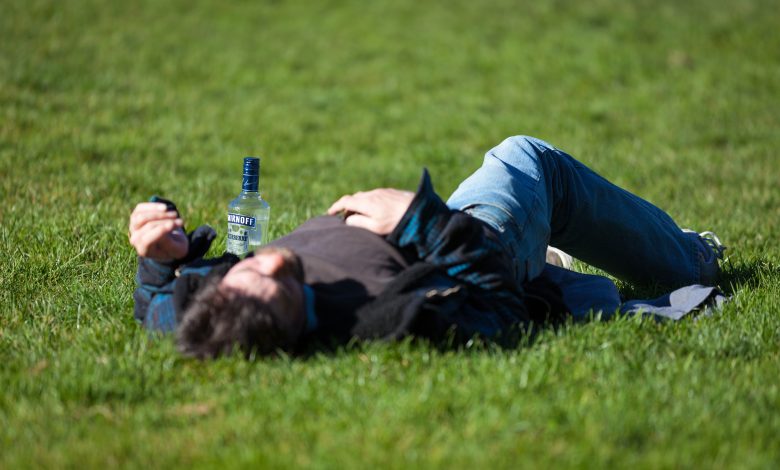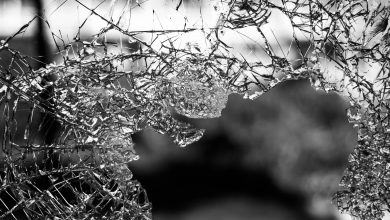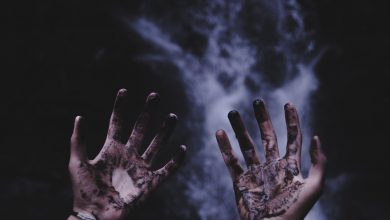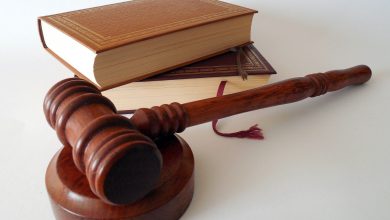Is Public Intoxication a Crime?

Public intoxication or public drunkenness is a punishable offense. Laws against public drunkenness exist to prevent people under the influence of drugs and alcohol from disturbing others in public, as well as to remove people who can’t control themselves from hurting themselves and others.
What is the legal definition of public intoxication?
Public intoxication is one type of alcohol crime and also goes by the name ‘public drunkenness,’ but it can also refer to being under the influence of drugs, not just alcohol. It involves being intoxicated/drunk in a public place, whether or not people are present in that place. Even if a person is of legal age to consume alcohol, they can be charged with public drunkenness or public intoxication.
State laws vary regarding the specific details of where a person can/cannot drink alcohol publicly. However, in most states, the legal limit of blood alcohol concentration (BAC) for public intoxication and DUI is 0.08%.

What substances are covered under public intoxication?
By law, the rules of public intoxication cover the following:
- Alcohol
- Narcotics
- Prescription drugs
- Over-the-counter medication
- Aerosol sprays
- Any drug that is consumed to the extent that it endangers the offender, another person, or property
When does public intoxication result in a conviction?
There are three elements that – if met – can lead to a conviction. The three elements are as follows:
- You were under the influence or appeared to be under the influence of drugs, controlled substances, and/or alcohol.
- You caused a disturbance or harmed another person.
- You were present in a public place.
While these three elements are general, some states also require that the prosecutor proves that you were completely out of control, didn’t appear to be able to take care of yourself, or that you were a threat to others.
For example, if you walked out of a bar in Alabama, and appeared to be boisterous and behaving in a lewd manner, or even if you were swearing, you could be charged under Alabama’s public intoxication statute.
In Florida, you could be booked for disorderly intoxication if you bother others or are disruptive.
Texas has a strict definition for “public place” and includes all places that are licensed under the Alcoholic Beverage Code. So you cannot use the excuse of “being in a private club.”
Is public intoxication a misdemeanor or felony?
Public drunkenness is a misdemeanor in most states. However, the laws regarding public drunkenness vary from one state to another state and also from one jurisdiction to another jurisdiction.
A person who is booked for public drunkenness can also be charged with more serious felony offenses if they violate any other laws. For example, if a person is drunk and assaults a person, damages property, and steals a car, they will be booked for stealing, assault, property damage, as well as public drunkenness.
In some states, public drunkenness is a summary offense. This means that all charges can proceed without an indictment or a right to a jury trial.
Aggravated public intoxication is a third offense of public drunkenness. This offense is punishable by up to two years in jail. Other consequences of aggravated public intoxication include community service, having the charge permanently on record, and large fines.
How serious is a public intoxication charge?
Public intoxication or public drunkenness is viewed as a crime in the United States. It is not considered a very serious offense in most states, as long as it is not a repeat offense and no other crime is committed at the time.
Besides the law, there are other consequences of public intoxication to consider:
- A criminal record
- Difficulty getting a job
- Other alcohol-related crimes
- Impact on child custody or divorce

Can an open can of alcohol prove that I was drinking?
The open container laws are state laws in the United States and not federal laws. The open container laws differ from one state to another and also from one jurisdiction to another jurisdiction. Drinking in public is banned in most jurisdictions in the country, and this ban often extends to drinking in a moving car, but this law is related to drunk driving rather than public driving.
Laws against public drinking are often referred to as open container laws, as the presence of a hidden open container of alcohol is often seen as evidence and is easier to prove than the actual act of drinking itself. Open containers of alcohol are often hidden in public under brown paper bags or in shopping carts. This is considered illegal in jurisdictions where drinking in public is illegal.
If you have an open container of alcohol around you, and the police officer can detect that you had been consuming alcohol, they have the power to cite or arrest you immediately.
Even if you are sitting in your car (which is considered private property), but are driving on a road or highway (which is considered public property), you can be arrested.
What are the stipulations for public intoxication?
Simply being drunk in public is usually not considered illegal. After all, people do go to bars, clubs, or restaurants, and they do consume alcohol. If you are drunk but do not misbehave and do not attract the attention of others – in other words, if you can behave in a normal manner – then you are not booked for public intoxication.
Some states enforce the laws for public intoxication only when the person is not able to care for themselves. This may also include ensuring the safety of other people, as well as the safety of the intoxicated person. Since it is possible for the intoxicated person to inflict harm to themselves or others, they can be arrested for public intoxication. The arrest takes place after it has been confirmed that the person can cause harm.
In areas where there is hardly any law enforcement, public drunkenness is usually reported by witnesses who have noticed actions and behaviors of the intoxicated person.
In short:
- No charges are issued when an intoxicated person does not exhibit erratic or violent behavior.
- No charges are issued on a person who has drunk over the legal amount of 0.08% BAC but does not exhibit erratic or violent behavior.
- A person can be arrested for such acts as falling, slurred speech, passing out, and attacking others or themselves.
Can I be charged with public intoxication without an alcohol test?
According to the laws of public intoxication, a person does not have to be drunk to be charged with the offense. In general, public intoxication or public drunkenness is not defined by the level of alcohol in the offender’s blood, but rather by their disruptive or harmful behavior.
- They could appear to be drunk or even acting in a rowdy or antagonistic manner. If the attending police officer does not like the way the person is acting or believes they are a threat to themselves or the public, they have the power to charge them.
- The way a person interacts with the police is used to assess if they must be charged.
- If a person smells of alcohol, they could be charged with public drunkenness.
- Stumbling and slurred speech are other criteria used to charge a person for public drunkenness.
Unlike in the case of driving under the influence (DUI), you can be charged with public intoxication without a test for alcohol level.
At the hearing of your case, the prosecutor can just rely on the account given by the law enforcement officer and witnesses who observed your behavior and presume you were drunk.
What are the penalties for public drunkenness?
The penalty for public drunkenness varies from one state to another, or even from one jurisdiction to another – depending on the cultural views of that place. Some states/municipalities view public drunkenness as a crime, while others view it as a condition.
Public drunkenness as a crime
If viewed as a crime (as is the condition in most states), it will be treated as a misdemeanor that is punishable by one or a combination of the following:
- Fines
- Jail time
- Probation
- Community service
- Permanent charge on your record
- Classes, treatment, or programs might be necessary for those who have been convicted of public drunkenness
In Indiana, the penalty for public drunkenness is a jail term for up to 180 days, as well as a $1,000 fine. But in California, the penalty for public intoxication under the influence of only alcohol (and not illegal drugs) is staying in a ‘sobering facility’ for up to 72 hours.
Public drunkenness as a condition
Some states do not view public drunkenness as a criminal offense but rather as a condition. Officers are not allowed to make an arrest.
Alaska in one such state that requires its officers to admit offenders to treatment facilities. Some states require the officer to take the offender back to that person’s home and detain them until they are not intoxicated.

Can I go to jail for public drunkenness?
Yes, public drunkenness can lead to a jail term and also penalties. As it is considered a misdemeanor, the time you will spend in jail for a first-time offense is a maximum of 30 days. However, depending on the state you were booked, you might get away with a fine of around $1,000 and/or probation without having to spend time in jail.
Aggravated public drunkenness, on the other hand, is punishable by up to two years in jail.
What is the bail for public drunkenness?
Public drunkenness is usually a class C misdemeanor, so no bail is required. However, if more serious charges are applied to you – such as resisting an arrest, or battery, then you will be given a higher sentence. The bail amount will then be set depending on the charges against you and also on the magistrate.
Can a public intoxication charge be dropped?
You have a right to defend yourself and fight all charges in court. A defense attorney can review the following with you:
- Were you actually violating the laws of the state?
- Was the arresting officer following the law to the tee?
- Did your conduct constitute a criminal violation?
If you have an experienced defense lawyer who can fight your case well, they can ensure that charges are dropped. However, this will also depend on each individual case and the evidence against you. A good lawyer will be able to ensure a better outcome of your case. If it is impossible to get all the charges dropped against you, they can still work at lessening your sentence and/or other penalties.
How do I fight a public drunkenness charge?
If you have been charged for public drunkenness, your lawyer will be able to help you by raising a couple of legal defenses, such as:
You were not drunk, and you were not acting drunk. Your lawyer can state that you were being overenthusiastic about a job promotion, or you were just happy. With this type of defense, you must be able to prove ‘that’ job promotion or whatever excuse you decide to use. Or you must prove that you were not drunk by providing a blood alcohol test taken at the time.
If public intoxication is not against the law where you were acting drunk, your lawyer could use this defense – like Missouri, Montana, and Nevada. There are other states that have certain communities where public intoxication is not against the law. For example, Milwaukee allows for public drunkenness, but certain municipalities within the state outlaw it.
To be charged with public drunkenness, you would have had to have been in a public place. Without this element, you cannot be charged. If you were ordered to come from a private place (for example, your home), out into a public place (or the sidewalk), and then charged with public drunkenness, your lawyer would be able to use this for your defense.
Your lawyer can argue that you were on prescription medications taken under the direction of a licensed physician. For example, if you were under the influence of ‘laughing gas’ for a dental procedure, it would serve as a valid defense. Again, proof of the prescription medication is required.

Will a public intoxication charge come up in my record?
A public intoxication charge will show up on your record and will remain there until you take steps to have it expunged. If you were charged with public drunkenness before the age of 21, it would appear on your driving license.
You can petition the court to expunge the misdemeanor from your record. Public drunkenness is a relatively minor charge (if you are NOT a repeat offender), and a criminal defense attorney can help you get it expunged. Once expunged, it will not appear on your record; however, details of the charge will be available to law enforcement services and the government.
Will a charge of public drunkenness affect my job/job application?
This depends on how many times you have been charged with public drunkenness. For instance, a one-off misdemeanor can be overlooked, while repeated offenses of public drunkenness could hinder your chances of getting a job.
In California, the charges against you might not come up in a background check, but it also depends on how extensive is the check. If you are worried about how a charge could affect your current job, it depends on your boss and your organization’s policies. You could look up your company’s handbook on the laws on public drunkenness and consult with your lawyer regarding how to handle the situation at work.
If you are applying for a government job or a government license, the charge will show up in their background check on you, even if you have had the charge expunged from your record. A criminal defense attorney can advise you on how to proceed.



